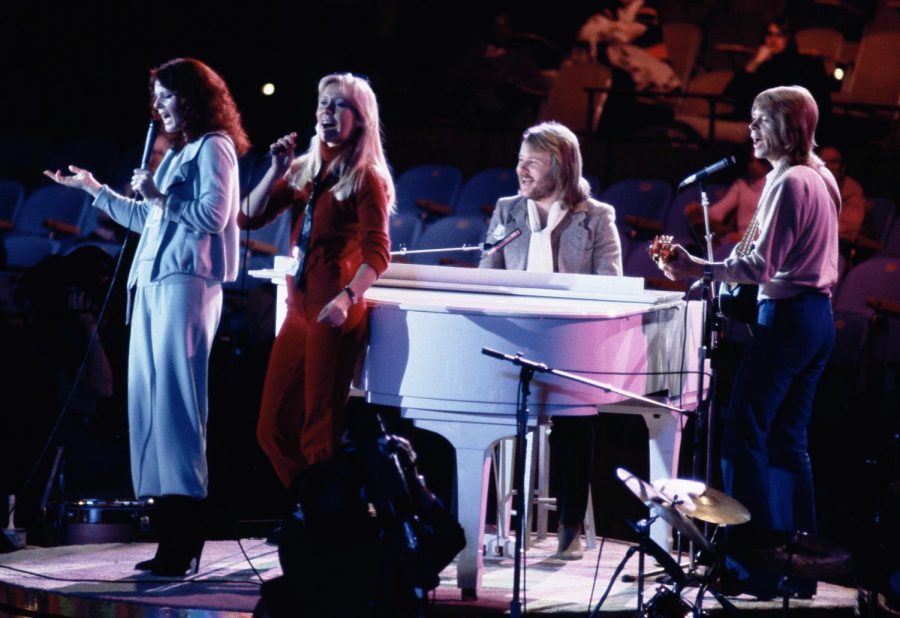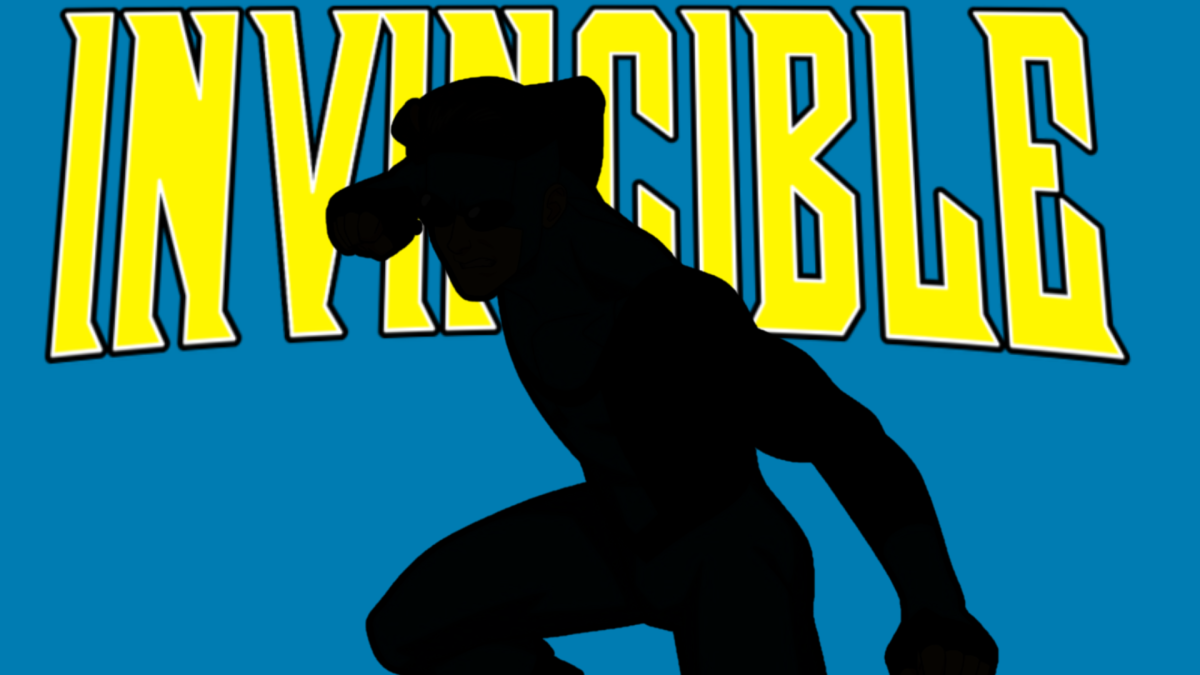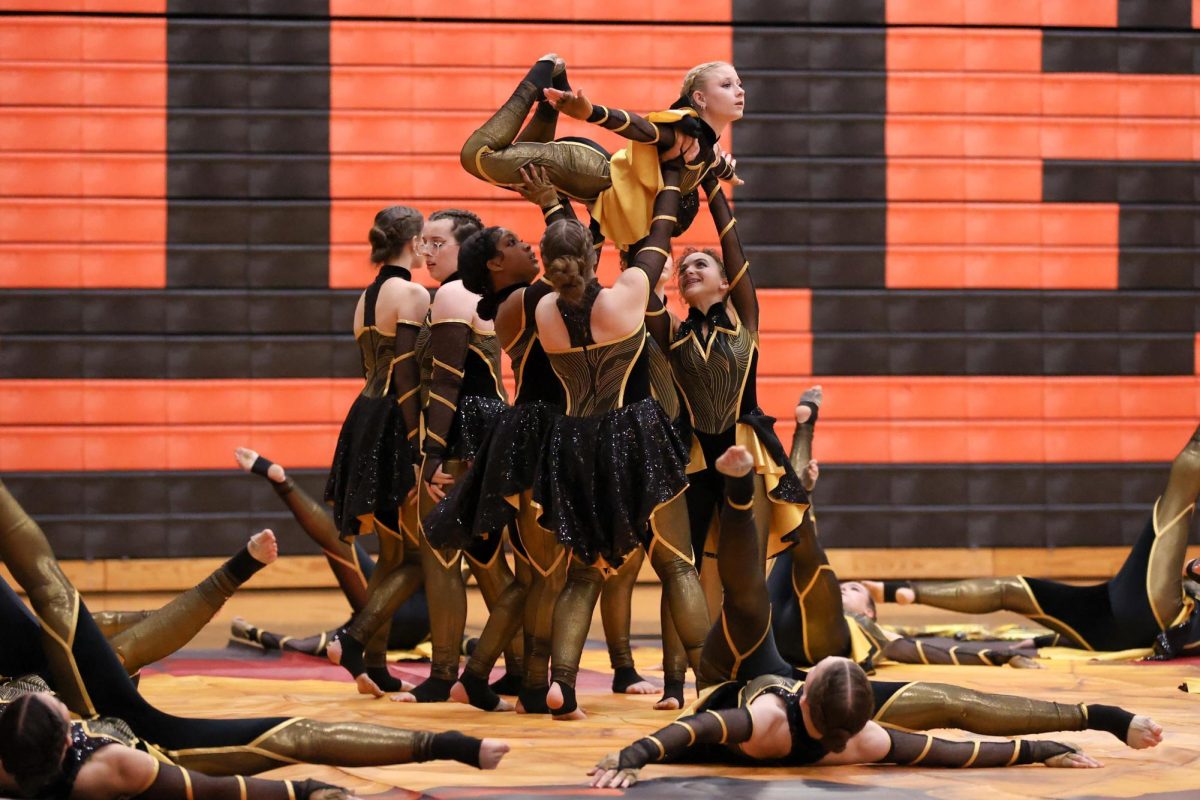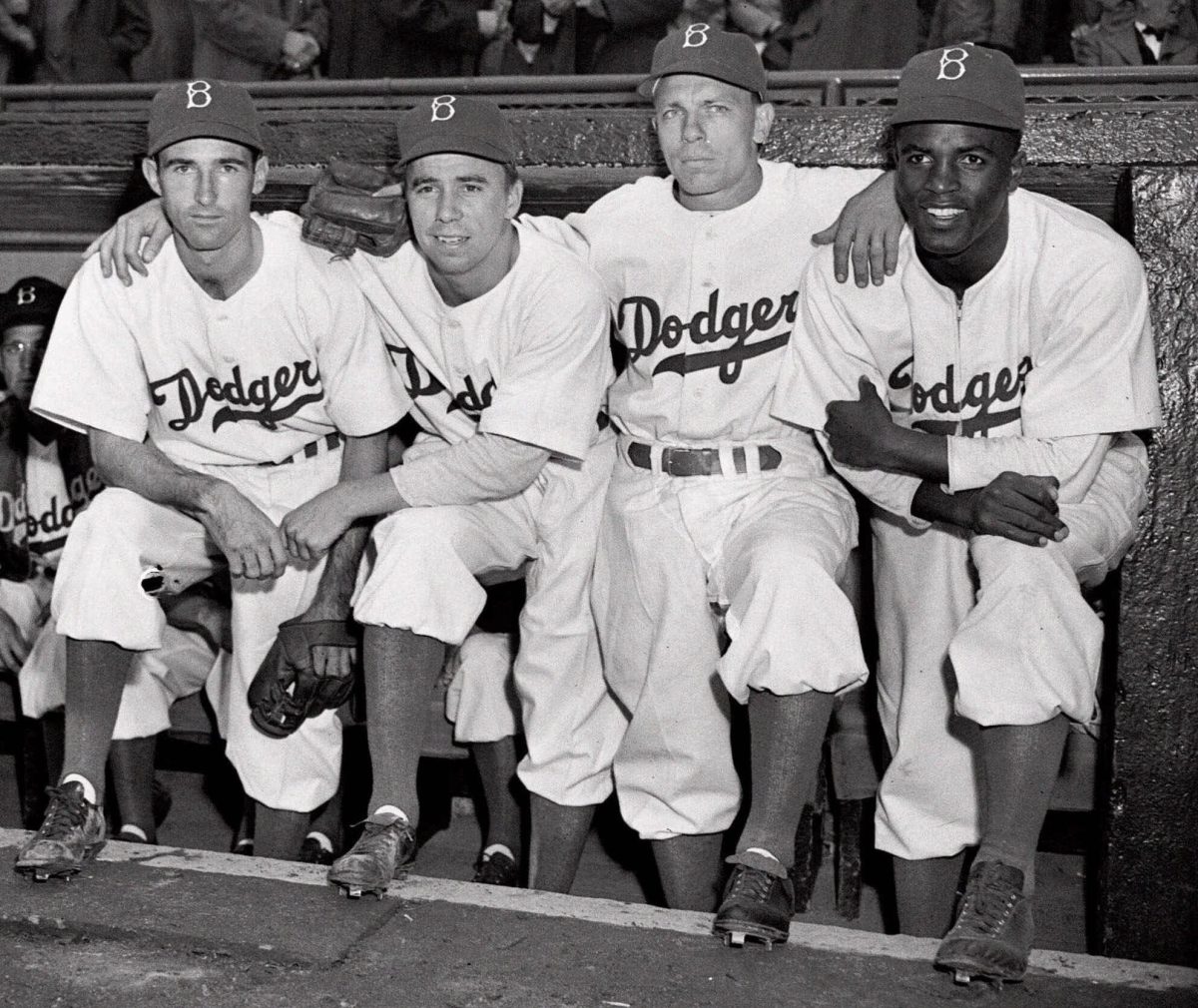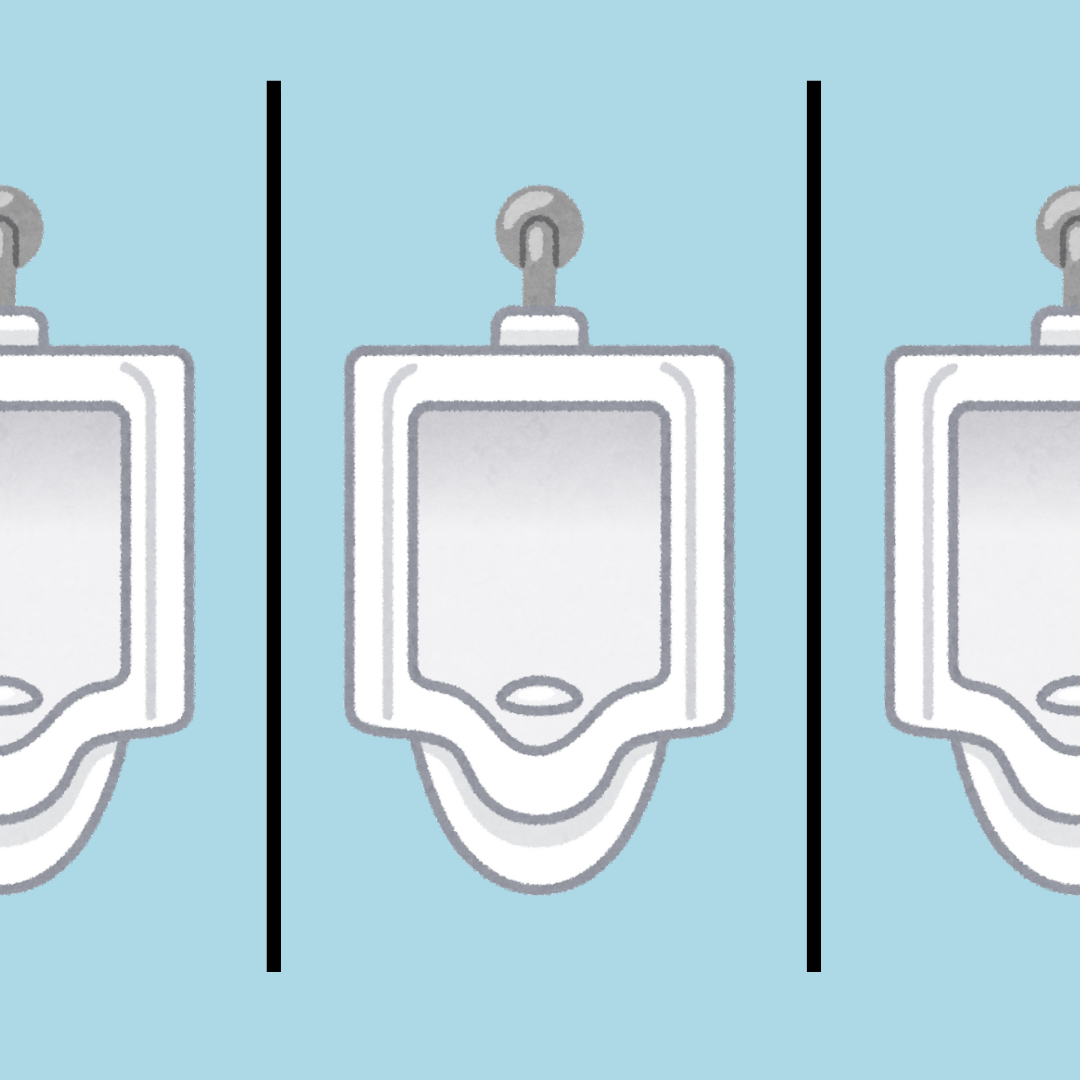ABBA is back and… Mamma Mia
December 3, 2021
Finally, after almost 40 years, ABBA was about to return.
A fan of classics like “If It Wasn’t For The Nights” and “The Winner Takes It All,” I couldn’t wait. I asked to publish a review of the new album as soon as I found out, weeks before it was released. When I finally had the chance to write, I sat down with the album, ready to hear the campy and exciting energy that had kept ABBA on my playlist for so many years.
Voyage, released Nov. 5, faces a bittersweet existence. It’s sweet that, after the trials of stardom and years apart, the members of ABBA are still friends and that making music together still comes naturally.
And the album is bitter in that it leaves a bad taste in my mouth. It has its good moments, but overall, Voyage can be described only as underwhelming.
Fascinating in its absurdity, sure. Having all of the concerts for your new album be performed by dancing hologram-versions of yourself from the ’70s is pretty rad. I’ll let the “ABBA-tars” slide.
But Voyage is stylistically bland, lacking the powerful vocals and memorable lyrics that make ABBA feel like ABBA.
Individual songs differ so greatly from one another that listening to the album feels like a gamble on the infinite moods that the next track could force upon you.
Accompanied by a slow-motion montage of videos and images from the band’s ’70s life, “I Still Have Faith in You” offers a triumphant beginning to the album. This music video also introduces the holograms, appearing on a mostly-dark stage, I assume to hide how eerie they look upon further observation.
The soft-piano-backed song acts as a bridge between the past and present, from ABBA’s glory years to a decidedly more digital frontier. This beginning also sets up a theme for the rest of the album: slow music and underpowered vocals make parts of Voyage feel less mature and more aged.
If you expect the contemplative style of the beginning of the album to be consistent throughout, prepare to accept the fact that Voyage keeps no promises.
The suddenness of “When You Danced With Me,” and its uncharacteristically Irish inspiration, make me think that the order of songs on this album was shuffled in error prior to release. This techno-Celtic ballad laments a lost love, another theme common in Voyage.
The lullaby-style introduction to “Little Things,” though it is a return to the slow, hushed beginning of the album, takes a step away from the theme of heartbreak. It takes a step into weird territory, though, as ABBA has decided to add a Christmas song.
Though I don’t expect this jarring inclusion to become a holiday classic, it provides a charming narrative about joy and family. In an album that largely features the painful side of love, this song’s peacefulness is a welcome, though confusing, addition.
Christmas is never mentioned again in Voyage, and the album continues with hardly a pause.
The first 40 seconds of “Don’t Shut Me Down” made me fear that depressing songs would define the rest of the album. But, after a truly ABBA-style piano entrance, the drums start to kick in and the rest of the song is filled with a reassuring amount of ’70s flair and excitement.
It is in this song that the band starts to include ideas of anger and separation, themes that reflect the real-life experiences of ABBA’s members and will continue through the rest of the album.
This high energy continues in the next song, likely because of its history.
Originally recorded in 1978, “Just a Notion” was intended to be included in the album Voulez-Vous. Its roots as a revived ABBA classic are apparent. This song has felt the most true to the band’s style of any part of the album so far.
The song also features the most powerful vocals of any in Voyage, and its topic hints at new love, making it stand out from the rest of the album on all fronts.
In a bleak follow-up to the energy of the past two songs, “I Can Be That Woman” is a soft-spoken retelling of a couple’s collapse into fighting and distance.
The song details the singer’s struggle with balancing her love for her partner with the fact that she constantly fights with him. It’s a depressing story that feels oddly placed when listening to the album in order.
“Keep an Eye on Dan” is, what I can only assume, the narrative outcome of the previous song.
Though it starts off slow, it quickly finds its footing with an exciting pace that feels right at home with ABBA’s discography. The topic of the song, however, is almost comedic paired with its danceability.
This divorce disco describes the challenges of co-parenting with a partner that the singer has left with mixed feelings. It is, beat-wise, one of the most fun songs on Voyage but I can’t imagine anyone listening to a song about childhood trauma and deriving joy from it.
A complete shift in tone, “Bumblebee” is a nearly four-minute song about loving bees. Sure.
Excitement returns with “No Doubt About It.” It opens with a fast pace and compelling melody that stays strong for the entire runtime of the track.
Though it is another song about managing anger and fighting with a partner, it takes a different approach than the rest of Voyage. The singer makes an attempt to apologize for the ways that she has acted in the past and admits regret for the arguments that she has caused.
The track makes a satisfying end for an album that has, mostly, been about anger and love. It neatly concludes the primary themes of Voyage and is just open enough to leave fans with something to think about.
But it doesn’t end the album.
“Ode to Freedom” is the final track on Voyage.
It’s a slow, deliberately-paced chorus, contemplating what it means to be free.
It’s a perfectly fine song. And that seems to be the theme that unites Voyage. All of the songs are fine, even great, on their own. But together, the album feels disjointed and inconsistent.
Maybe ABBA never intended for their fans to listen to Voyage as one unit. But if the album is nothing more than 10 singles hastily strung together, why were the songs not released independently?
So much of the interest that preceded the album was surrounding the return of ABBA. When I heard how different many of these songs were from the rest of the band’s work, it felt like a bait-and-switch.
Of course, bands are always evolving and changing their styles. Songwriter Björn Ulvaeus even admitted that ABBA’s history had no impact on Voyage. Why then, was so much time invested in recreating the past?
From old clips to painstakingly recreated CGI likenesses, so much of this album feels desperate to return to what once was.
If ABBA wants to move forward, it needs to stop being held back by its past.


